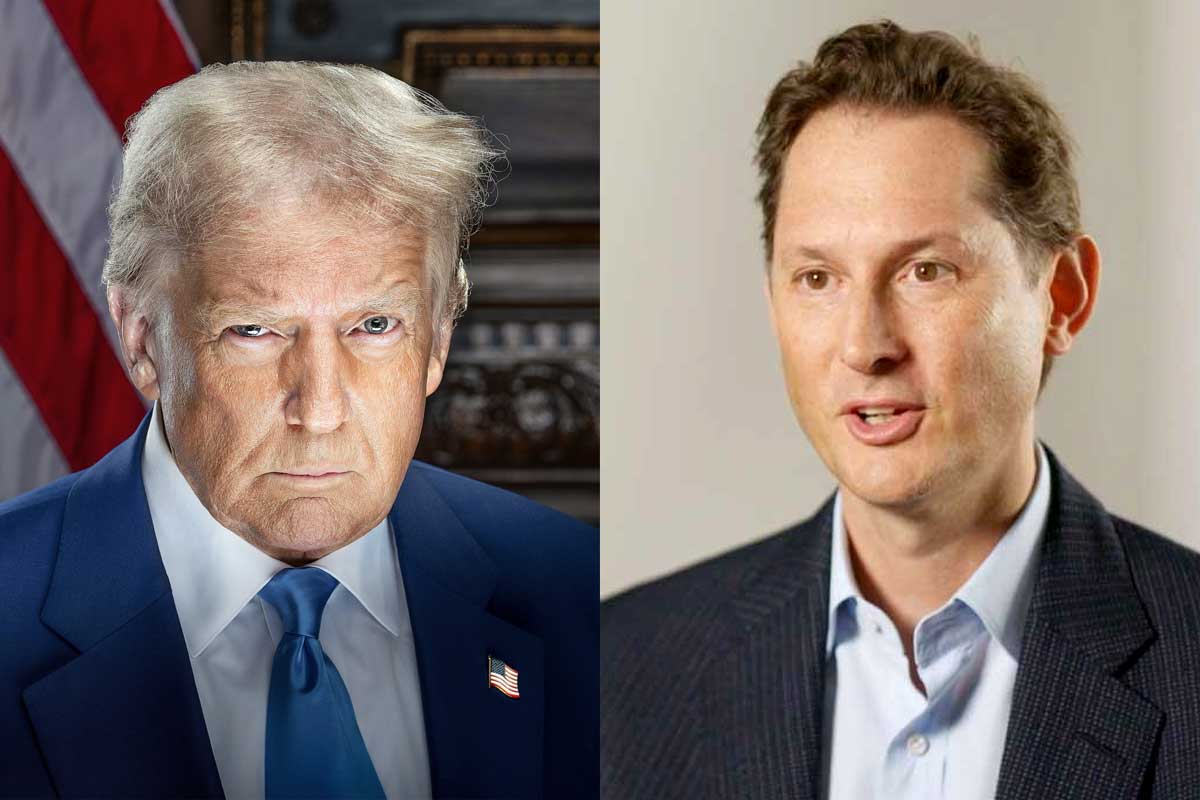
It's a thunderclap for the global automotive world. As trade tensions between the United States and the European Union continued to escalate, U.S. President Donald Trump announced proposed tariffs of 20 % on products imported from Europe. Even more serious: a tax of 25 % will apply specifically to automobiles not manufactured on American soil.
For the group's premium Italian brands StellantisThis is game-changing news. Maserati generates 40 % of its sales in the United States, whileAlfa Romeo sells 14 % of its vehicles there. This North American market, an essential pillar for both brands, is now being called into question.
Faced with this threat, John Elkann, Chairman of Stellantis, has decided to react. According to Bloomberg, he recently asked the consulting firm McKinsey to help him think strategically about the future of Alfa Romeo and its brands. Maserati. Among the avenues being explored: industrial partnerships, external synergies... and even a possible spin-off from Maserati in the longer term.
A choice that may come as a surprise from John Elkann, who said a short while ago: ". We'll launch the right models, with the right engines, at the right time.. " So why call in an outside firm to "save" these two brands? Because the equation has suddenly changed: the future of Alfa Romeo and Maserati depends heavily on the American market. And with new customs barriers, a whole part of their product strategy is in jeopardy.
The figures speak for themselves. For several years now, the United States is by far Maserati's biggest market. As for Alfa Romeo, the USA is its second biggest sales market, and was even number 1 in 2021. Here are the main markets for both brands:
| Year | Alfa Romeo USA | Maserati USA |
|---|---|---|
| 2023 | 2e | 1st |
| 2022 | 2e | 1st |
| 2021 | 1st | 1st |
| 2019 | 2e | 1st |
| 2018 | 2e | 1st |
| 2017 | 2e | 1st |
| 2016 | 3e | 1st |
Against this backdrop, it's hard to imagine a future without the United States. All the more so as Alfa Romeo's new product plan seems designed precisely to win back America. After a B-SUV Junior designed primarily for Europe, the brand plans to renew the Stelvio, the Giulia, a revised Tonale and even a future E-SUV. All models calibrated for the North American market. If tariffs rise, this plan falls through. And a question arises: Can Alfa Romeo survive on Europe alone? Not with the current roadmap, clearly.
For Maserati, the uncertainties are even greater. The 2020-2025 strategy aimed at making the brand a pioneer of the 100 % electric vehicle has ended in failure. And yet, despite timid sales of the Folgore range.., the USA continued to act as a lifeline. Without this market, the brand's volumes would have been almost halved.
Today, Maserati lives and breathes thanks to the MC20 supercar, the Granturismo, the Grancabrio and the Grecale SUV. Two crucial models are still to come: the new Levante and the future Quattroporte. Crucial models to ensure continuity. But the fragility of the brand contrasts with its apparent serenity. other Italian luxury brands such as Ferrari and Lamborghini, also affected by the new taxesbut less dependent and much more financially robust.
So, what does the future hold for Maserati? And by extension, for Alfa Romeo? The good news is that John Elkann doesn't seem ready to give them up. He's committed to his two Italian gems. But the question remains: Why wait for the rubber band to break before taking bold action? The situation of these two brands has been fragile for years now. The call to McKinsey, if it comes late, could finally be the turning point. It's about time.
Further proof that they're completely out of their depth.
It has to be said that they've scared off the competent enthusiasts...
McKinsey is perhaps the world's worst consulting firm... We remember their "sound advice" to Purdue Pharma.
Relying on a consulting firm speaks volumes about the sagacity of the Stellantis board.